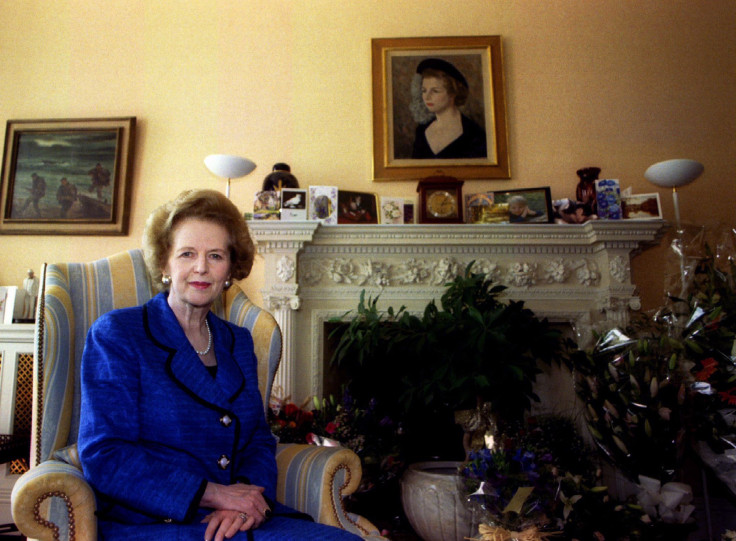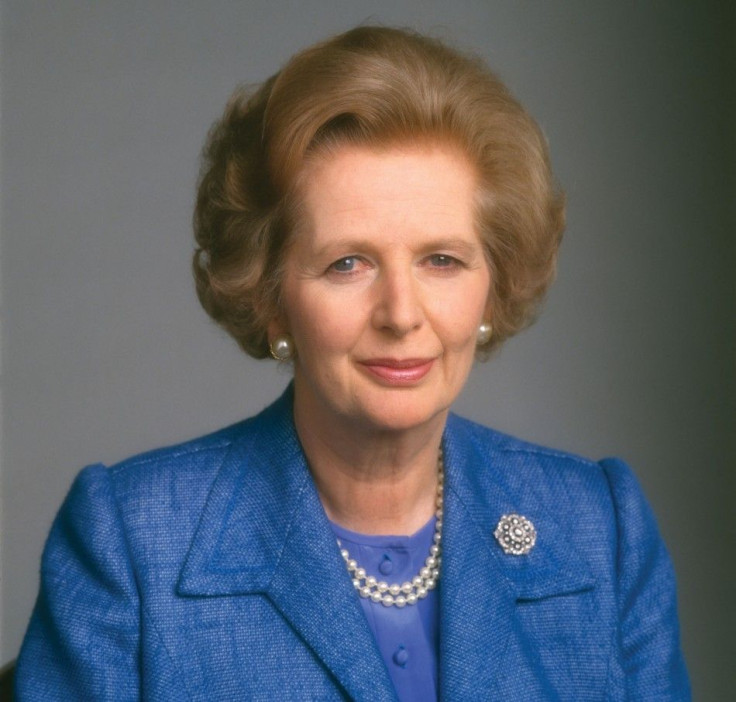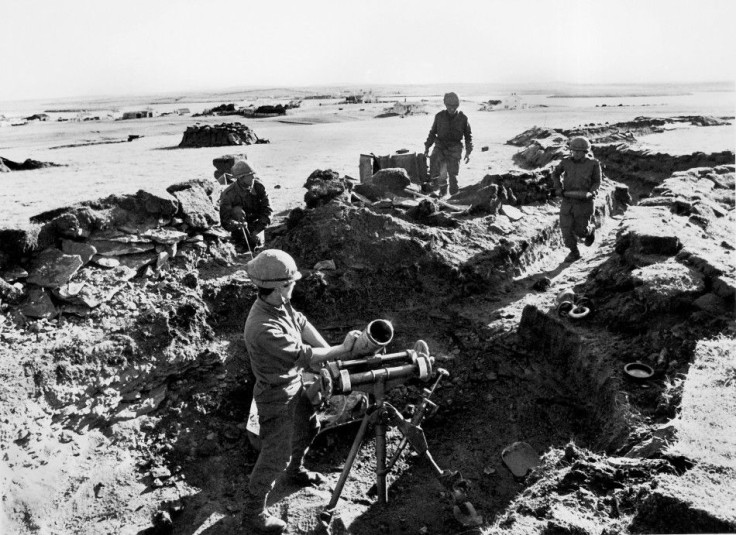Margaret Thatcher Dead To Argentina Long Before Her Passing: Bad Blood In The Falkland Islands


Margaret Thatcher, the Iron Lady and iconic 11-year prime minister of the United Kingdom, passed away after a long illness on Monday -- and reactions have been all over the map.
Thatcher was a champion of political conservatism and market capitalism; she was beloved by some and hated by others. But death has damped her divisiveness, however briefly. This week in London, words of admiration have come from public figures of all stripes.
Of course, that’s not the case everywhere. Many of Thatcher’s harshest critics reside in the South American country of Argentina, which is at odds with the United Kingdom over a rocky archipelago called the Falkland Islands -- or, depending on your allegiances, Las Islas Malvinas. The last bloody conflict over the territory began and ended in 1982, but the status of the islands is bitterly disputed to this day.
That has made it difficult for Argentineans to embrace Thatcher’s legacy.
“She will be remembered in Argentina because she was a towering personality, and because she showed that females can be very efficient in government,” said Fernando Petrella, Argentina’s ambassador to the United Nations from 1997 to 1999. “But she will also always be remembered because, having the possibility of avoiding the Falkland War, she decided not to do so.”
While the archipelago is the most obvious symbol of strife between Buenos Aires and London, the conflict runs much deeper. It is rooted in philosophical and political differences that have much to do with the contentious history of European colonialism.
“Over the final 20 years of the 20th century, and in the most powerful countries in Europe and the Americas, we have seen a predominance of neoconservative governments with the aim to dominate the world and impose their political-economic vision,” said Argentine historian Juan Carlos Prioria.
“A minimal state and savage capitalism … Thatcher [and many other Western leaders] are representatives of this line of thinking, which I do not share,” he said.
Showdown at Sea
The Falkland Islands, as they are called by most of the West, seem to be an odd setting for bloody combat. The terrain is rocky; the weather is typically chilly and windy. English speakers with British heritage populate the archipelago, but those humans are vastly outnumbered by sheep.
Nonetheless, ownership of the islands has become a matter of national pride. The struggle between the United Kingdom and Argentina -- or Spain, Argentina’s controlling power before 1816 -- has been going on for centuries. There are resources at stake, too; potential oil reserves are currently being explored in the surrounding waters.
The age-old dispute between London and Buenos Aires grew especially serious in 1982, six years after a military junta seized control of Argentina. National leaders during that period are remembered for brutally suppressing political dissidents, severely mishandling the national economy and lowering the standard of living for most civilians.
Gen. Leopoldo Galtieri was serving as president in April 1982 when Argentine troops rolled into Las Islas Malvinas. His intent was to bolster his position amid ongoing diplomatic talks about the islands’ fate; the move also seemed designed to stir up patriotism and rally public opinion in the junta’s favor.

Ambassador Petrella, who joined the Argentine Foreign Service in 1965, was in Rome when the junta sent its troops to occupy Las Malvinas.
“As a young diplomat who had been dealing with the Malvinas issue for many years, I thought the occupation of the Island in order to force negotiations was a great mistake,” he said. “But I cannot speak for my fellow countrymen; there was some enthusiasm at the very beginning of the occupation.”
It is likely that Galtieri was betting on hesitance in London -- apparently, he forgot whom he was dealing with. With Thatcher’s approval, British forces scrambled to gather naval vessels, aircraft and troops necessary to retake the archipelago.
Conflict ensued, and hundreds of soldiers on both sides lost their lives. But despite initial concerns about a lack of sufficient airpower or strategizing, British forces carried the day. Buenos Aires surrendered on June 14, 1982, but Argentina did not give up its claim to the Islas Malvinas.
Spinning the Story
Today, London is the de facto administrator of the archipelago and claims it as a British Overseas Territory. The U.N. does not formally recognize this designation, calling instead for both sides to come to a permanent resolution through talks. But Geneva plays a weak role in this conflict, especially since the U.K. holds a permanent spot -- and veto power -- on the U.N. Security Council.
Argentina’s position is further weakened by the population of the archipelago, which is descended from British settlers and can be counted on to side with London every time a referendum is held. The last such vote was held in March.
“The Kelpers’ [a sobriquet for the island’s inhabitants] last plebiscite claiming self-determination was a ploy for the U.K. to delay compliance with the U.N. decision,” Prioria said.
“These islands are geologically, geographically and historically Argentine. This is recognized by the United Nations,” he added. “If international bodies are involved, you have to respect their decisions if they are legally sound. Britain should comply with U.N. resolutions and return the islands to Argentina.”
As if that issue weren’t contentious enough, Thatcher stands accused of much more than just seizing a group of islands. In 1982, she condoned a May 2 torpedo attack against an Argentine light cruiser, sinking the ship and killing 323 sailors. For that, her most vehement critics -- Argentineans as well as British leftists -- have accused her of committing war crimes.
These critics note that the Argentine ship -- called the ARA General Belgrano -- was outside of the Total Exclusion Zone, or the previously designated combat area, when it was struck. They also argue that it was headed away from the islands, and was therefore not a threat to British sailors.
Thatcher had been challenged repeatedly and publicly on this point, and had defended herself with characteristic resolve.
She argued that she had received information suggesting that the Argentineans intended to come at the British fleet from two sides, and that attacking them was necessary for the protection of British troops.
“We had received intelligence about the aggressive intentions of the Argentine fleet,” she wrote in her 1993 book, "The Downing Street Years." “There had been extensive air attacks on our ships the previous day and Admiral [Sandy] Woodward, in command of the Task Force, had every reason to believe that a full scale attack was developing.”
Disputes as to the legality of Thatcher’s decision are ongoing, but many Argentineans see the Belgrano attack as just one more example of post-colonialist European interference -- with impunity -- in the affairs of other countries.
The Silver Lining
Given this history, it is easy to see why Thatcher is generally disliked in Argentina.
But it is worth noting that the British prime minister and the Argentinean population did share a common enemy: a dictatorial military junta, whose authorities killed or kidnapped thousands of civilians over its seven-year tenure.
“Argentineans will remember that Thatcher decided to order the sinking of the Belgrano outside of the area of operations,” said Perella. “But she will also be remembered because the demise of the Argentinean invasion brought about the end of the military junta, and democracy came back to Argentina.”
When the military regime in Buenos Aires crumbled in 1983, it was largely the result of public backlash following the country’s humiliating defeat at Las Malvinas.
The restoration of democracy in Argentina does not appear to have been a goal -- or even much of a thought -- for Thatcher in 1982, who said repeatedly that she had mobilized simply to preserve British territory and, once the fight had begun, “protect our boys.”
But the British military victory did hasten the end of a brutal administration. That's good news, even if it’s not enough to restore Thatcher’s legacy in the eyes of the Argentinean people.
© Copyright IBTimes 2024. All rights reserved.






















